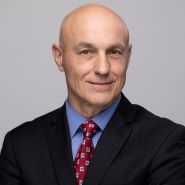Federal Circuit Holds That Foreign Companies Accused of Patent Infringement Remain Unprotected by U.S. Venue Laws
- June 8, 2018
- Article
Associated People
As we discussed last year, the U.S. Supreme Court’s decision in TC Heartland LLC v. Kraft Food Grp. Brands LLC, 137 S. Ct. 1514 (2017) significantly limited where patent infringement actions could be brought against U.S. defendants. In particular, TC Heartland clarified that U.S. defendants can only be sued for patent infringement where (A) they are incorporated or (B) they have committed acts of infringement and have a regular and established place of business. While there was initially some dispute about how to apply the “regular and established place of business” standard, this was later clarified by the Federal Circuit in In re Cray Inc., 871 F.3d 1355 (Fed. Cir. 2017). See our previous post for more details.
Importantly, the Court in TC Heartland declined to address the implications of its holding for foreign defendants. TC Heartland, 137 S. Ct. at 1520 n.2. Instead, the Court merely noted that it was expressing no opinion on its previous holding in Brunette Machine Works, Ltd. v. Kockum Industries, Inc., 406 U.S. 706 (1972), where it had determined proper venue for foreign corporations under the “then existing statutory regime.” In Brunette, the Court had re-affirmed the “long-established rule that suits against aliens are wholly outside the operation of all the federal venue laws, general and special.” Id. at 714. In other words, under Brunette, foreign entities could be sued for patent infringement in any district where they were subject to personal jurisdiction—the venue laws did not provide any further restriction on where they could be sued.
Against this backdrop, the Federal Circuit has now issued an opinion re-affirming the holding of Brunette even in light of TC Heartland and recent changes to the U.S. venue statutes. In re HTC Corp., No. 2018-130 (Fed. Cir. May 9, 2018). By way of background, 3G Licensing, S.A., Orange S.A., and Koninklijke KPN N.V. (collectively, “Plaintiffs”) sued HTC Corp. (a Taiwanese corporation) and HTC America, Inc. (a Washington corporation with its principal place of business in Seattle, Washington) in the U.S. District Court for the District of Delaware. HTC Corp. and HTC America moved, inter alia, to dismiss the case for improper venue in view of TC Heartland. After considering the motion, the district court found that venue was not proper as to HTC America but was proper as to HTC Corp. In particular, the court held that HTC Corp., as a foreign corporation, was still subject to the rule expressed in Brunette, i.e., it could be sued in any district where it was subject to personal jurisdiction. HTC Corp. then filed a petition for a writ of mandamus at the Federal Circuit, seeking to have the Federal Circuit order the district court to dismiss the case against HTC Corp. for improper venue.
In its opinion, the Federal Circuit determined that there was “no error in the district court’s analysis.” HTC Corp., slip op. at 7. In fact, the Federal Circuit again reaffirmed the “long-established rule that suits against aliens are wholly outside the operation of all the federal venue laws, general and special.” The court found that TC Heartland and recent changes to the venue statutes did not alter this fundamental principle. Accordingly, going forward, foreign defendants in patent infringement cases can still be sued in any district where they are subject to personal jurisdiction. For example, in a recent decision in Endo Pharms. Inc. v. Lupin Atlantis Holdings SA, No. 2:17-CV-00558-JRG (E.D. Tex. May 29, 2018), the court found that venue was proper in the Eastern District of Texas with respect to defendant Lupin Atlantis Holding SA—a Swiss company with a principal place of business in Switzerland.
Thus, while TC Heartland and In re Cray represent a sea change in how the venue laws apply to U.S. defendants in patent infringement actions, there does not appear to be any corresponding sea change with respect to foreign defendants. Now, as before, foreign defendants can be sued for patent infringement in any U.S. district court where they are subject to personal jurisdiction.
Recent Publications
5 IP Rules to Know to Protect Your Business in the United States (article in French)
Coaching INPI Newsletter










 Counseling & Strategic Advice
Counseling & Strategic Advice IP Transactions
IP Transactions Litigation
Litigation PTAB Proceedings
PTAB Proceedings Start-Up
Start-Up Technology Transfer
Technology Transfer Trademark & Designs
Trademark & Designs U.S. Patent Procurement (Application Drafting & Prosecution)
U.S. Patent Procurement (Application Drafting & Prosecution)








